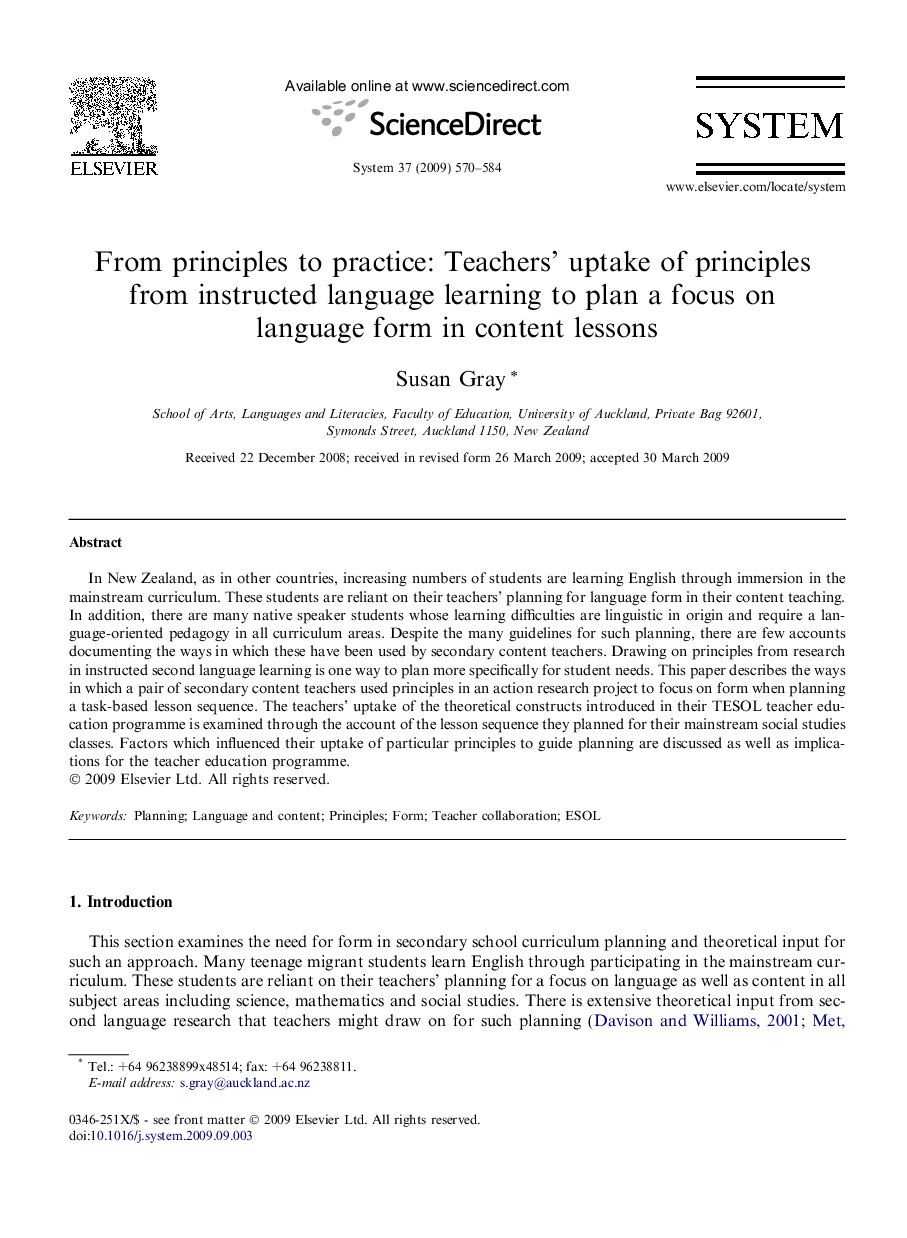| Article ID | Journal | Published Year | Pages | File Type |
|---|---|---|---|---|
| 373677 | System | 2009 | 15 Pages |
In New Zealand, as in other countries, increasing numbers of students are learning English through immersion in the mainstream curriculum. These students are reliant on their teachers’ planning for language form in their content teaching. In addition, there are many native speaker students whose learning difficulties are linguistic in origin and require a language-oriented pedagogy in all curriculum areas. Despite the many guidelines for such planning, there are few accounts documenting the ways in which these have been used by secondary content teachers. Drawing on principles from research in instructed second language learning is one way to plan more specifically for student needs. This paper describes the ways in which a pair of secondary content teachers used principles in an action research project to focus on form when planning a task-based lesson sequence. The teachers’ uptake of the theoretical constructs introduced in their TESOL teacher education programme is examined through the account of the lesson sequence they planned for their mainstream social studies classes. Factors which influenced their uptake of particular principles to guide planning are discussed as well as implications for the teacher education programme.
